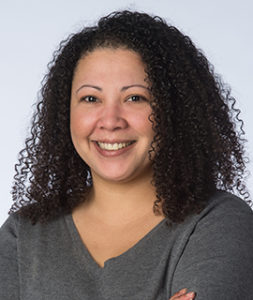
Home » Healing Lodge of Seven Nations opens new clinic
Healing Lodge of Seven Nations opens new clinic
New space provides expanded services for adolescent care on 51-acre campus in Valley

September 14, 2023
In a quiet corner of Spokane Valley, songbirds and other sounds of nature occasionally break the silence at the recently completed Family Wellness & Healing Center, where employees at The Healing Lodge of the Seven Nations are preparing to welcome families to its new health care facility.
The Healing Lodge is located on a wooded 51-acre campus, at 5600 E. Eighth, in Spokane Valley, where youths between 13 and 17 years old receive treatment for substance misuse and addiction.
Construction of The Family Wellness & Healing Center was funded by a $2 million grant from the Washington state Department of Commerce and took two years to build.
The new clinic allows the Healing Lodge to offer expanded services for adolescents, says executive director Rebecca Crocker, adding that the campus now offers behavioral health counseling and medical care.
“We built this because we didn’t have enough space to actually conduct the services at the level that we felt was important for us to provide,” says Crocker.
The Spokane Valley-based nonprofit organization was established in 1988 to provide an adolescent residential treatment center for seven sovereign tribal nations including the Spokane Tribe of Indians, Kalispel Tribe of Indians, Confederated Tribes of the Colville Reservations, Nez Perce Tribe, Kootenai Tribe of Idaho, Coeur d’Alene Tribe, and the Confederated Tribes of the Umatilla Indian Reservation.
Crocker says that before the 6,000-square-foot outpatient clinic was constructed, counseling services for families were limited due to space and often took place in the Healing Lodge’s cafeteria, where there wasn’t much privacy available.
The families seeking care deserved a better space for family counseling than was previously available in the center’s cafeteria, she says.
“I wanted to see that they had an appropriate space where they could receive counseling services,” she says. “I wanted it to be of a quality where they would feel like they were equal to everyone else … and also have it culturally appropriate.”
The cultural aspect of health care is an important part of the clinic’s services, explains Crocker. Throughout the campus and in the new facility, there are pictures of tribal members, art produced by members, and elements that incorporate the natural environment.
“It will make them feel comfortable,” she says. “It has the perfect elements for both culture and treatment.”
The Healing Lodge’s therapeutic model focuses on youth empowerment, stress reduction, and healthy activities as a way to address the whole health of the residents.
Crocker says the new building also has space for a health care training program, in partnership with Harvard Medical School, where new health care providers will be trained and certified.
The training program also will teach families and others involved with caring for tribal youth about addiction and how it impacts and affects children.
“We’ve been working closely with Harvard Cambridge for 11 years and it’s evolving now into an institutional training center. They’re looking to establish peer-support counselors, and we would train them here,” she says. “The goal is to get them out on the reservation so they get the committed people who want to do counseling at the local level.”
Crocker says the entire scope of the program is under review through a sustainability analysis that will be presented to the Healing Lodge’s board of directors soon.
If approved, the training program could be another source of revenue for the nonprofit by charging participants of the program with a nominal fee that would support the trainers.
She says, “There’s a shortage of counselors and healthcare workers as a whole. Our training center will really help with building that up and making counseling services more accessible.”
The facility’s placement on campus intentionally leaves room for future expansion of the health care clinic when the need arises, she says.
For now, the clinic is open to residents of its 45-bed inpatient program until all of the clinic’s staff are on board.
Crocker says she’s mostly excited to provide families with the space they need to focus on health and recovery at the Healing Lodge campus.
“We’re hoping we’ll draw those families here … because it takes the family support to make their youth get well,” she says.
Latest News Special Report Health Care
Related Articles
Related Products




![Brad head shot[1] web](https://www.spokanejournal.com/ext/resources/2025/03/10/thumb/Brad-Head-Shot[1]_web.jpg?1741642753)
